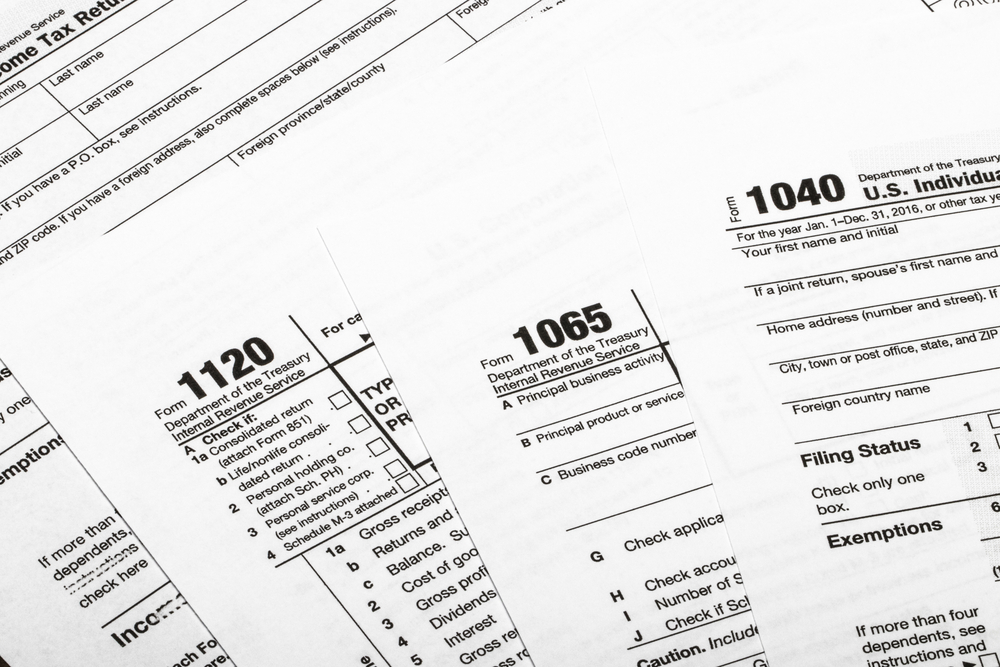Whether you’re a self-employed team of one, or an S corporation with many shareholders, a lot goes into filing your business taxes as part of a pass-through entity. To make it all a little less overwhelming, here is your definitive small business tax prep checklist!
General Self-Employed Tax Checklist
Whether filing taxes as a single-member LLC or as a sole proprietor you will need to collect your personal information, income items, and deductions before filing your taxes. You will also need a few specific forms in order to file your taxes properly.
Personal Information
In order to tell the IRS exactly who you are when filing a tax return, you’ll need to provide the following information:
- Your name (written exactly as it is on your Social Security card)
- Your date of birth
- Your Social Security number (SSN)
- Your home address
- A copy of your federal and state tax returns from last year
- Your bank account number and routing number (for direct deposit of your tax refund, if applicable)
Income
Depending on your business structure and the method(s) by which you collect payments from clients, you may have several forms representing your sources of income. Here are all the forms you may need to collect for tax purposes:
- 1099-K forms received from PayPal, Venmo, or other third-party payment processors
- 1099-NEC forms received from clients for independent contract work
- Other 1099 forms for investment earnings (1099-INT and 1099-DIV) or broker-handled transactions (1099-B)
- W-2 forms for any employment income (must be issued to you through your employer by February 2, 2026)
- Gross receipts from sales
- Accounts receivable (sales records)
- Any returns or allowances
- Any other income, such as rental income or tax credits received
Deductions
With your gross income calculated, you now need to outline all of your business-related expenses to generate your total taxable income. Business deductions may include:
- The cost of goods sold (beginning and end-of-the-year inventory amount, inventory purchases, materials, and supplies)
- Advertising and marketing costs
- Phones (landline, fax, business cell phone)
- Computer and internet expenses
- Business use of a personal car, either as an actual expense deduction or mileage deduction
- Travel expenses
- Meals for business purposes
- Commissions and fees
- Software subscriptions
- Depreciation of business assets
- Contract labor costs
- Insurance
- Loans and interest payments
- Office space outside of the home
- Home office (calculate square footage of home office space against total square footage of home and total mortgage interest or rent paid)
- Employee wages
- Estimated tax payments
- Other business-related expenses such as repairs and maintenance
Forms to File
If you are self-employed, the forms you file (and how you fill them out) will differ from those filed by a W-2 employee. Here are the forms you may need to file:
- If you’ve hired an independent contractor for $600 or more this year, you’ll need to issue them Form 1099-NEC. If you have not already done so, collect a W-9 from them to assist you in filling out the 1099 form.
- If you have any employees, you’ll need to issue them W-2s.
- Complete Form 1040 using the collected information to file your taxes.
- If you are filing as a sole proprietor, you will need to include Schedule C with this tax return form.
- If you earned more than $400 in self-employment income during the calendar year, Schedule SE is used to calculate your self-employment tax and should be included with Form 1040.
Partnership Tax Checklist
When filing taxes for a business registered as a partnership (or if you are a multi-member LLC filing as a partnership), you’ll need all of the above information in addition to a few other documents and information regarding your business partner:
Partner Information
Partnerships are considered “pass-through entities,” meaning you and your partner(s) will each pay taxes for your business as part of your personal tax return. As such, you will need some information from your partner to properly fill out your own portion of the taxes:
- Partners’ names (exactly as they appear on their Social Security cards)
- Partners’ home addresses
- Partners’ SSN or Employer Identification Number (EIN)
- Each partners’ ownership percentage (including profit and loss percentage if these differ)
- Information from each partner regarding their:
- Capital contributions, distributions, and other financial transactions
- Share of the liabilities
- Insurance
- Liquidating payments
- Any ownership percentage changes, or loss or addition of partners
Documents
The primary document you will need in order to file taxes as a partnership is Form 1065, but here are a few more documents you may need:
- A copy of your partnership agreement, including any amendments and bylaws (If you’re an LLC opting to be taxed as a partnership, you’ll need a copy of the LLC operating agreement and any articles of organization)
- A list of federal and state EINs
- Your Form 1065, Schedules K-1, and state or local returns from the previous year
S Corporation Tax Checklist
S Corporations are slightly different from partnerships, but are still ultimately classified as pass-through entities. This means, like with sole proprietorships and partnerships, you file your portion of the business’s taxes alongside your personal tax return.
Shareholder Information
Just like with partnerships, you will need the following information for anyone with ownership stakes in your business as an S Corporation:
- Shareholders’ names (exactly as they appear on their Social Security cards)
- Shareholders’ home addresses
- Shareholders’ SSNs or EINs
- Number of shares that each shareholder owns
- Information for each shareholder regarding their:
- Capital contributions, distributions, or loans
- Reasonable compensation paid to any shareholder
- Insurance
- Any changes in ownership throughout the year
Documents
To file your taxes as an S Corporation, you will need the following documents:
- An acceptance letter from the IRS for your S corporation selection (or a previously filed Form 2553 requesting this filing status)
- A copy of the business’s bylaws and articles of incorporation (If you’re an LLC opting to be taxed as an S Corporation, you’ll need a copy of the LLC operating agreement and any articles of organization)
- A list of federal and state EINs
- Any information carried over if converted from C Corporation to S Corporation
- Your Form 1120-S, Schedules K-1, and state or local returns from the previous year




